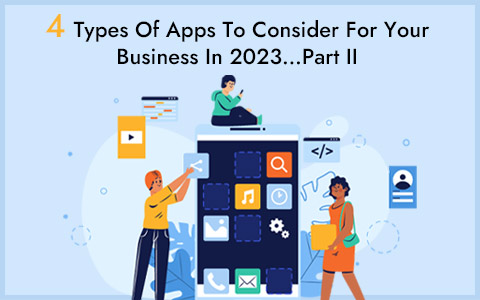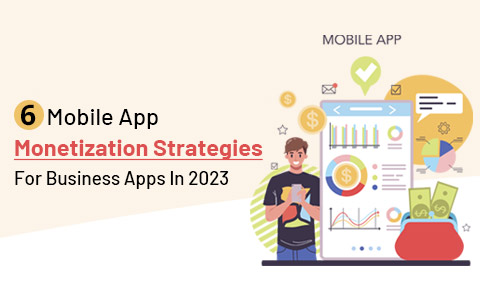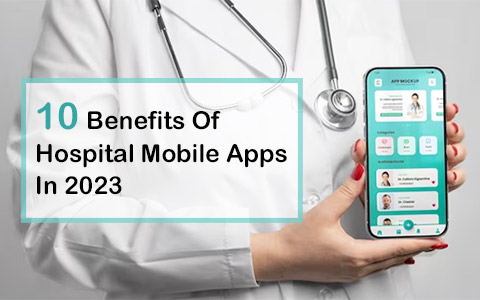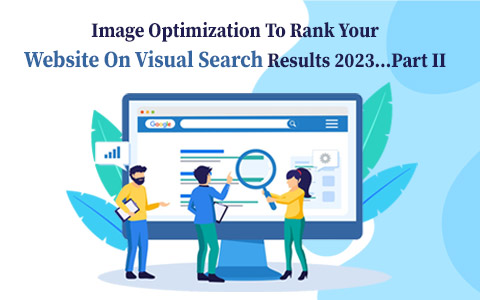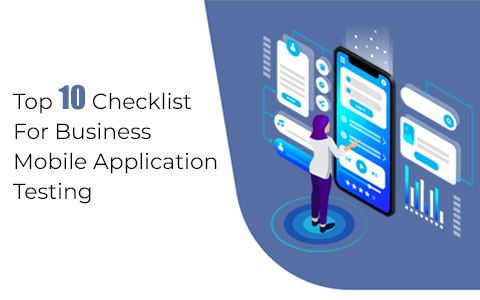4 Types Of Apps To Consider For Your Business In 2023…Part I
“Apps are the silent superheroes of the digital age, seamlessly integrating into our lives and making the complex simple.”
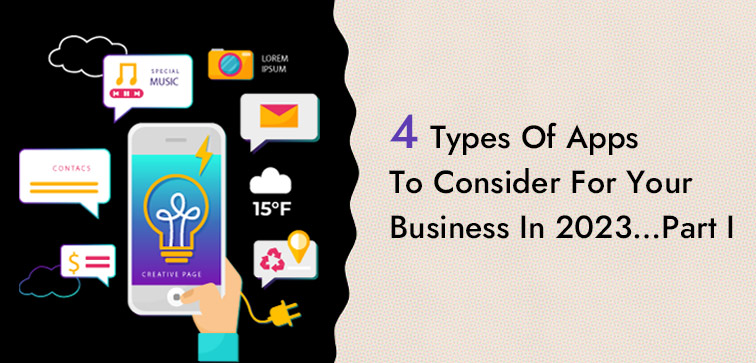
In this captivating two-part blog series, we will unravel and analyze the four highly coveted app types that dominate today’s ever-evolving market. Discover the unique advantages and limitations of each app type, and unlock the essential insights needed to choose the ideal app for your specific needs.
At Midas, we pride ourselves on our extensive industry experience spanning over eighteen years. With our expertise in designing and developing applications, websites, and mobile apps, we have witnessed the ever-evolving landscape of technology firsthand.
Our comprehensive range of services caters to all your needs, offering Custom Application Development Services, professional designing, comprehensive optimization, and rigorous quality testing solutions. As your trusted partner, we are committed to bringing your vision to life and ensuring your app stands out amidst the competition. You can give us a call for more details and information.
In This Blog Series, We Will Delve Into The Following Topics:
1. Native apps, features, pros and cons
2. Hybrid apps, features, pros and cons
3. Web apps, features, pros and cons
4. Progressive web apps, features, pros and cons
5. 5 Key Factors to Consider When Choosing an App Type
Native Apps & Features:
Native apps dominate the app market, comprising a significant majority of available downloads. The Google Play store (as of the 3rd quarter of 2022) boasts over 3.5 million apps, while Apple’s App Store offers access to more than 1.5 million apps.
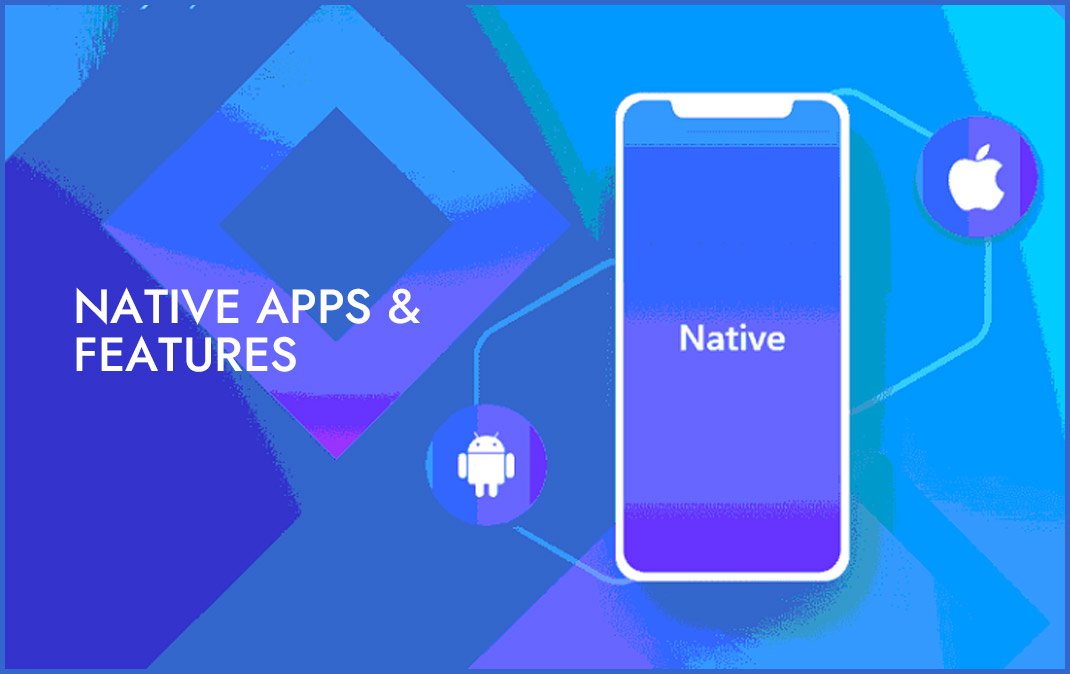
Native apps are specifically designed to run on a particular platform, such as iOS or Android, providing users with a seamless and highly responsive experience.
1. Native apps are tailored to operate on specific platforms like iOS or Android, available through app stores such as the Google Play Store or Apple App Store.
2. Once downloaded, native apps reside directly on the user’s device, ensuring quick and convenient access, even offline.
3. Native apps excel in leveraging the full potential of a device, tapping into its features for advanced functionality and superior user experiences.
4. With direct access to the device’s processor, native apps offer fast and responsive performance without relying on an internet connection.
5. The seamless integration with the device’s operating system enhances user experience, providing a cohesive and intuitive interface.
6. Data storage on the device enables improved performance and quicker loading times, proving beneficial for data-intensive or offline functionality.
Native Apps: Pros & Cons
1. Native apps shine in delivering outstanding performance and an exceptional user experience, thanks to their seamless integration with device hardware. Users enjoy faster, smoother, and highly responsive interactions.
2. These apps leverage advanced device features, like the camera, GPS, and push notifications, providing enhanced functionality and interactivity.
3. The ability to function offline sets native apps apart. Installed on users’ devices, they can perform tasks without requiring an internet connection, catering to various user needs.
4. However, native apps do have drawbacks. Development costs can be significant due to their complexity and the need for skilled developers. Creating apps for multiple platforms further adds to the expense.
5. Regular updates are a necessity for native apps to stay compatible with the latest device operating systems, resulting in additional effort and time for both developers and users.
Hybrid Apps & Features:
Hybrid apps bring together the best of native and web apps; with a single codebase, these apps run seamlessly across multiple platforms. Their rising popularity stems from the numerous advantages they provide.
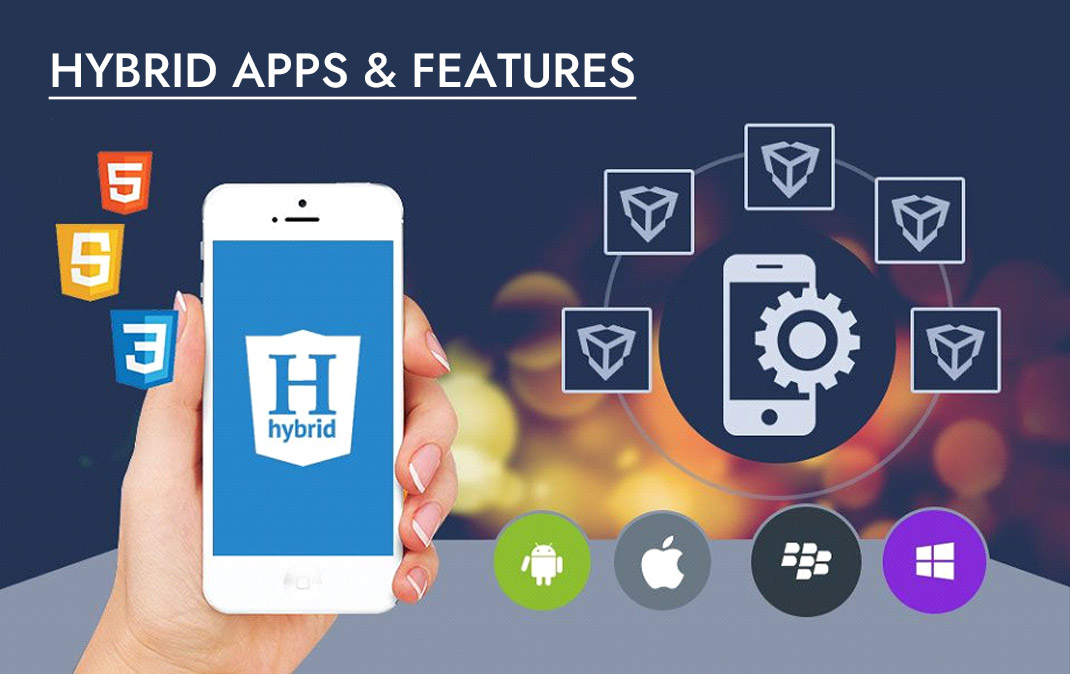
1. Hybrid apps combine the strengths of native and web applications. Hybrid apps are customized using web technologies such as HTML, CSS, and JavaScript; by encapsulating these technologies within a native container, hybrid apps are designed to be compatible across various platforms. This approach streamlines development by utilizing a single codebase.
2. A key advantage of hybrid apps is their expedited development process, as the same codebase can be employed for multiple platforms. This not only reduces time-to-market but also cuts down on costs, making it an enticing option for businesses. Maintenance is simplified as updates can be made to the central codebase and seamlessly deployed across platforms.
3. Furthermore, hybrid apps harness the device’s native features, encompassing functionalities such as camera access, microphone integration, and GPS utilization. This empowers developers to deliver user experiences on par with native apps.
Hybrid Apps: Pros & Cons
1. Advantage of cross-platform compatibility with hybrid applications. Hybrid apps can be deployed across multiple platforms, such as iOS, Android, and web browsers, with a single codebase.
2. Benefit of cost-effectiveness with hybrid applications. Developing hybrid apps for multiple platforms incurs lower costs compared to separate native app development.
3. Leverage of faster time-to-market with hybrid apps. With a unified codebase, hybrid apps can be developed and launched more swiftly than separate native apps.
4. Disadvantage of performance issues such as complex animations, graphics, or intense processing may lead to slower performance in hybrid apps compared to native apps.
5. Due to limited access to device features, hybrid apps may not fully leverage hardware capabilities like the camera or GPS.
6. The Hybrid apps may exhibit a less refined or responsive user interface, as they rely on web technologies for some functionality.
7. Hybrid apps may require more frequent updates to ensure compatibility with new OS updates and device features.
Conclusion:
We will continue to provide further updates and cover the remaining apps in our next part. Stay tuned for more! If you require expert advice and assistance in web application development or customized web design services, Don’t Hesitate To Contact Midas. We are readily available and just a phone call away!
popular post
-
8 Reasons Why You Are Struggling With Your Business Website

-
6 Best Ways To Increase Customers For Your Beauty Business Website
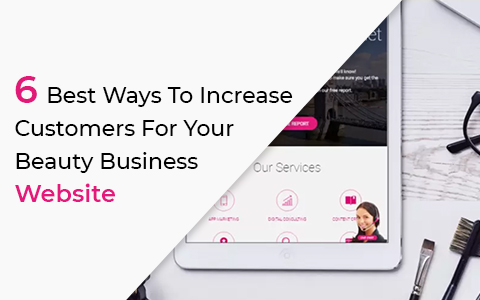
-
7 Signs Your Website Needs A Redesign

Categories
- Internet Marketing (13)
- Software Development (8)
- Mobile Apps Development (44)
- Web Designing (32)
- Web Development (60)
 business@midaswebtech.com
business@midaswebtech.com July 21, 2023
July 21, 2023
